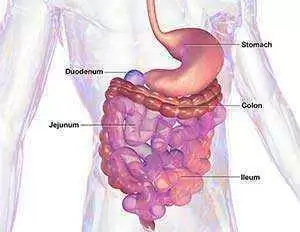Celiac.com 02/13/2015 - Food intolerance is non-immunological and is often accompanied by gastrointestinal symptoms.
 What can a review of scientific literature teach us about the causes, diagnosis, mechanisms and clinical evidence regarding food intolerance and gastrointestinal symptoms? Researcher M. C. E. Lomer recently set out to critically analyze the scientific literature related to etiology, diagnosis, mechanisms and clinical evidence as it relates to food intolerance.
What can a review of scientific literature teach us about the causes, diagnosis, mechanisms and clinical evidence regarding food intolerance and gastrointestinal symptoms? Researcher M. C. E. Lomer recently set out to critically analyze the scientific literature related to etiology, diagnosis, mechanisms and clinical evidence as it relates to food intolerance.
Celiac.com Sponsor (A12):
To do so, Lomer searched Pubmed, Embase and Scopus for the terms and variants of food intolerance, lactose, FODMAP, gluten, food chemicals. He restricted his search to human studies published in English. Lomer also conducted a physical search for references to these terms from relevant papers and appropriate studies.
By Lomer’s assessment, food intolerance affects 15–20% of the population and may be due to pharmacological effects of food ingredients, non-celiac gluten sensitivity or defects in enzyme and transport.
One area researchers now have a bit more solid scientific data about is the role of short-chain fermentable carbohydrates (FODMAPs) in causing gastrointestinal food intolerance. Food exclusion followed by gradual food reintroduction is the best way to diagnose such food intolerance, and to relieve symptoms.
There is increasing evidence to support the use of a low FODMAP diet to manage gastrointestinal symptoms in cases of suspected food intolerance. A low FODMAP diet is effective, but changes gastrointestinal microbiota, so reintroducing FODMAPs to the point of tolerance is part of the overall management strategy.
Exclusionary diets should be as brief as possible. They should be just long enough to induce symptom improvement. They should then be followed by gradual food reintroduction to establish individual tolerance.
This will help to increase dietary variety, ensure nutritional adequacy and minimize impact on the gastrointestinal microbiota.
Source:
- Open Original Shared Link
- Open Original Shared Link.








Recommended Comments